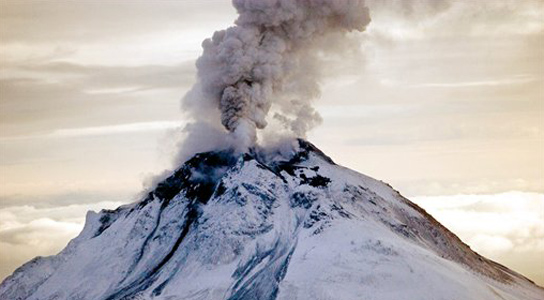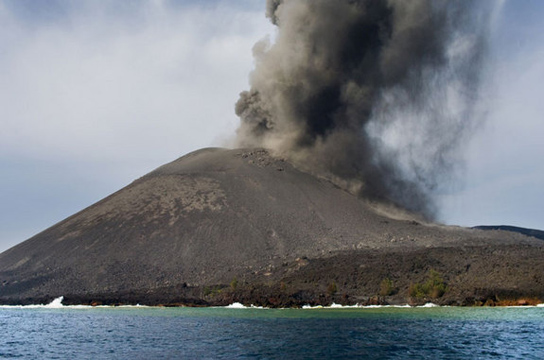
The Little Ice Age (LIA), a mysterious period of cooling that occurred after the Medieval Warm Period and extended from the 16th into the 19th century, might have been caused by a series of volcanic eruptions and sustained by sea ice.
The LIA lasted from 1550 to 1850 and had three particularly cold intervals, one in 1650, another one in 1770 and the last one in 1850. New research that was published today in the journal Geophysical Research Letters, looked at chemical clues preserved in Arctic vegetation. It also pinpointed the start of the LIA to the end of the 13th century.

During the cold spell, advancing glaciers destroyed northern European towns and froze the Thames River in London, as well as the canals in the Netherlands, places that are now completely ice-free. The climate feedback system explains how this cold period could be sustained for such a long period, states Gifford Miller, a geological scientist at the University of Colorado, Boulder, and lead study researcher.
The massive tropical volcanic eruptions spewed aerosols into the atmosphere. While suspended, the aerosols reflected solar radiation back into space, effectively cooling the planet. The cooling was sustained by sea-ice feedback in the North Atlantic Ocean. Expanding sea ice melted into the North Atlantic Ocean, interfering with the usual mix between surface and deep waters. The water flowing back to the Arctic was colder, helping to sustain large areas of sea ice, which in turn reflected even more light back into the atmosphere. This resulted in a self-sustaining albeit temporary feedback loop.
The researchers came to these findings by looking at radiocarbon dates, depending on how much radioactive carbon dead plants from Baffin Island contained. The plants were found by melting the ice in the Canadian Arctic. The analysis showed that many plants died between 1275 and 1300, which means that Baffin Island froze over quite suddenly. A second major cooling occurred in 1450.
The periods coincide with two of the most volcanically active half centuries in the past millennium.
Reference: “Abrupt onset of the Little Ice Age triggered by volcanism and sustained by sea-ice/ocean feedbacks” by Gifford H. Miller, Áslaug Geirsdóttir, Yafang Zhong, Darren J. Larsen, Bette L. Otto-Bliesner, Marika M. Holland, David A. Bailey, Kurt A. Refsnider, Scott J. Lehman, John R. Southon, Chance Anderson, Helgi Björnsson and Thorvaldur Thordarson, 31 January 2012, Geophysical Research Letters.
DOI: 10.1029/2011GL050168
2 Comments
You might like to fix the grammar fail in the subbing in this article. I suggest changing it to: “Little Ice Age sparked by volcanoes, sustained by sea-ice feedback”.
Deborah – Thanks for the correction!